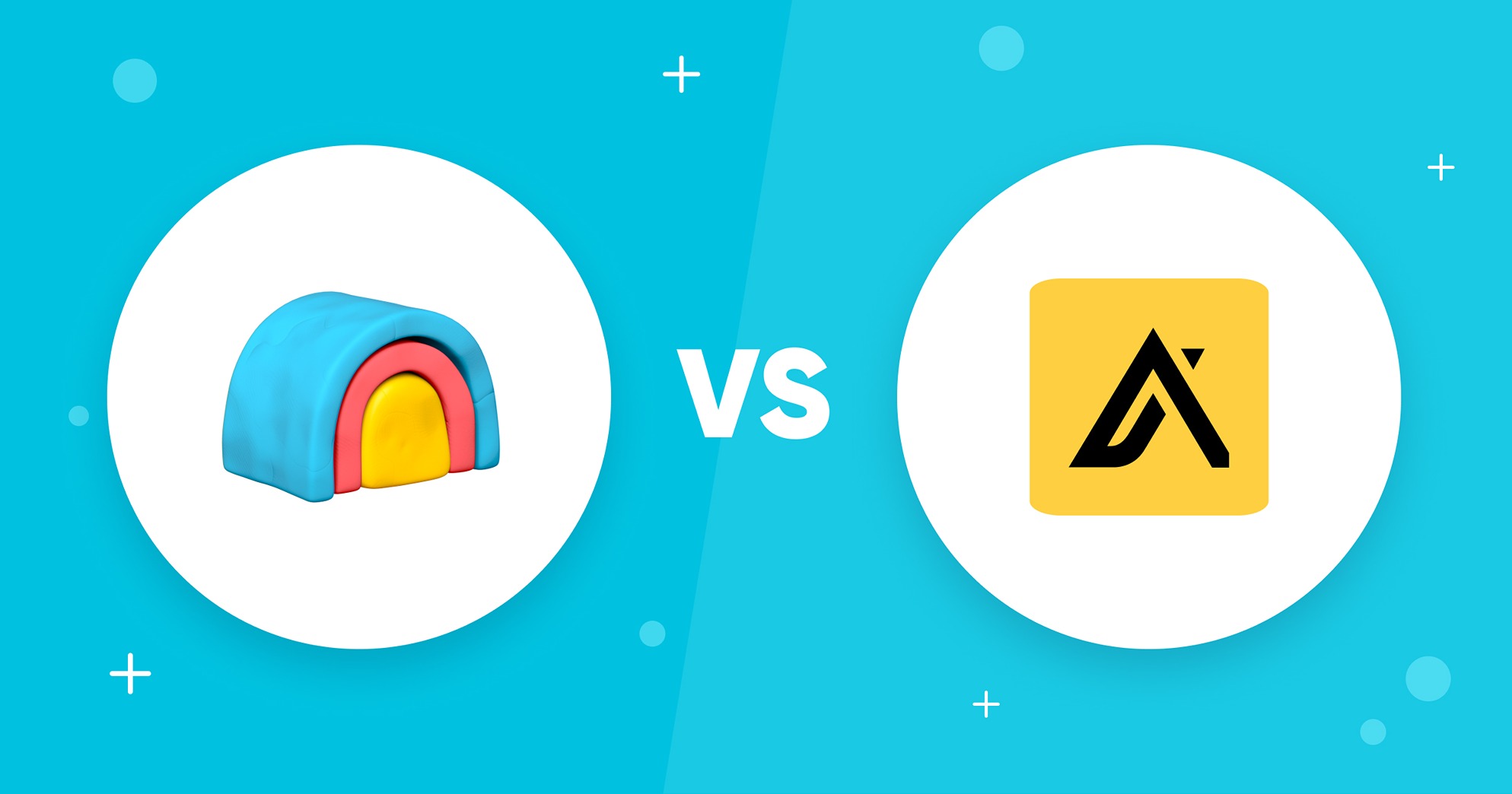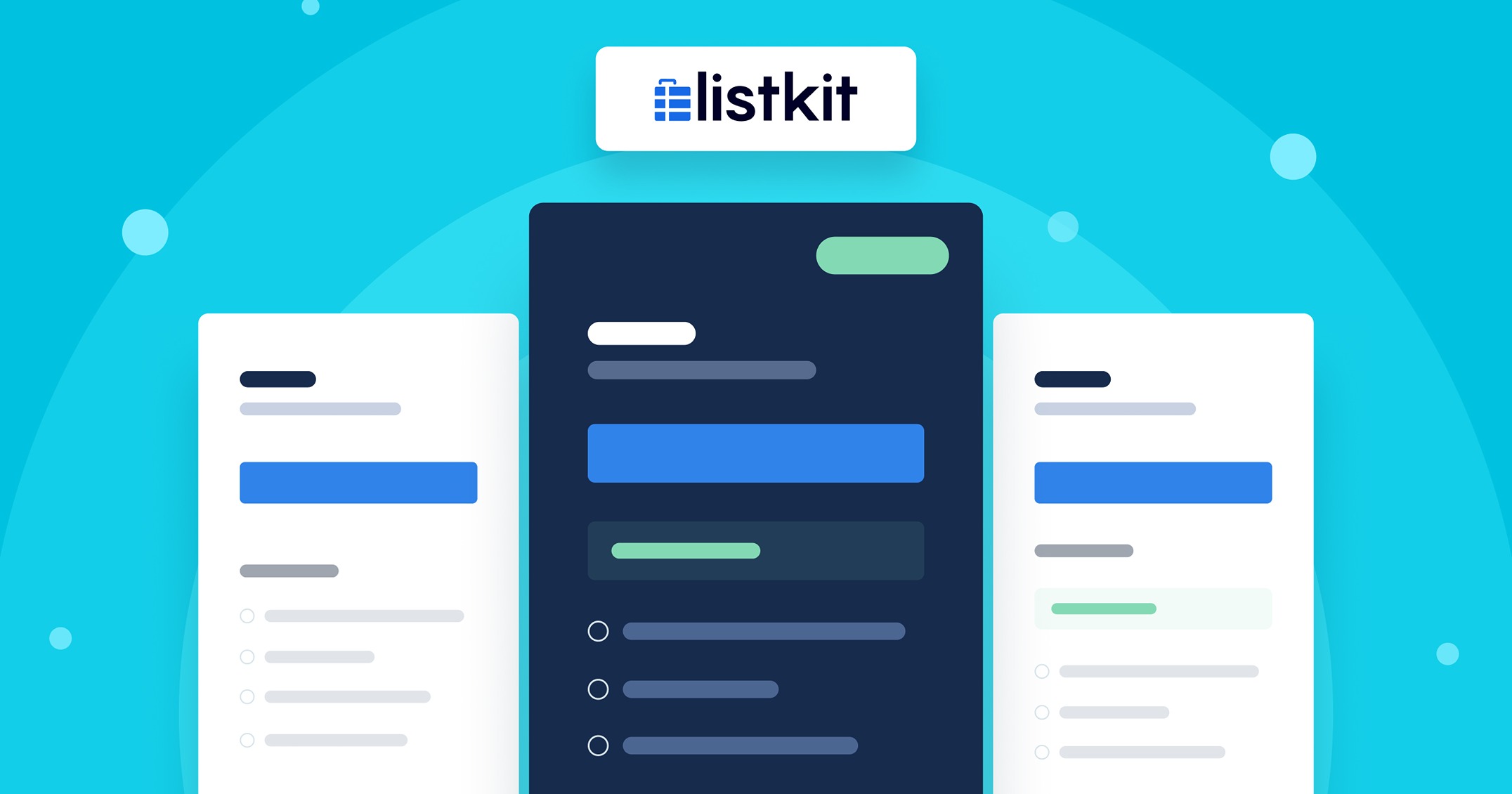When it comes to sales intelligence tools, Apollo.io and Seamless.ai are two of the top contenders. With so many options on the market, identifying the solution that best aligns with your business needs and priorities can be challenging. This comprehensive guide compares the key features, data quality, integrations, pricing, and more between these leading platforms.
Whether you need advanced analytics or AI-powered automation, this detailed comparison aims to provide the clarity required to determine which platform may be better for driving your entire sales productivity and revenue goals.
What is Apollo.io?
Apollo.io is a comprehensive sales intelligence and engagement platform for prospecting, outreach, and revenue. Unique features include an extensive database, advanced search filters, email finder and call tools, multi-channel engagement sequences, and analytics. This platform integrates with major CRMs and email platforms and caters to organizations of all sizes looking to scale their sales and marketing efforts. Apollo.io aims to help find and qualify prospects more efficiently and manage the entire lead engagement lifecycle from a unified platform.
What is Seamless.ai?
Seamless.AI is an AI-powered sales intelligence solution focused on real-time lead generation and sales productivity. It provides a search engine to find and verify B2B contact info by crawling the web. Users can build targeted prospect email lists, integrate Seamless.ai with CRMs, and leverage company research tools like the Chrome extension for lead generation across websites. Key features include contact and email verification tools, list building, buyer intent data, and sales acceleration tools. Seamless.ai is well-suited for sales teams, recruiters, and marketers looking to increase efficiency and convert more prospects.
Apollo.io vs. Seamless.ai Detailed Comparison Guide
With an increasing number of sales intelligence platforms on the market, it can be challenging to determine the best sales techniques and resources to fit your business needs. This detailed comparison guide aims to clarify how leading options Apollo.io and Seamless.ai stack up across key factors like features, B2B data provider coverage, integrations, pricing, and more. By evaluating these critical dimensions side-by-side, you can gain greater insight into the strengths and differences between Apollo and Seamless. Whether you require advanced analytics or AI-driven automation, this guide will help inform your decision when choosing a sales intelligence platform optimized for your goals.
Key Features
Understanding the core capabilities of each platform is essential for comparison:
Apollo
Apollo provides robust sales enablement tools for customized workflows:
- Advanced Search Filters: Allows for highly tailored searching by data attributes like industry, tech stack, and more
- Engagement Tools: Features like email templates, multi-channel sequences, and meeting scheduler optimize outreach
- Sales Intelligence: Insights and recommendations powered by AI aim to enhance sales strategies
- Data Enrichment: Keeps contact data up-to-date by syncing with CRMs
- Analytics: Robust analytics provide visibility into prospecting and campaign performance
- Integrations: Connects with various CRMs, email platforms, and communication tools
- Compliance: GDPR compliant and SOC 2 / ISO 27001 certified for security standards
Seamless
Seamless focuses on automation, real-time data, and flexibility:
- Powerful Search Functions: Continuously scans the web to find and verify the most up-to-date contact data
- List Building: Tools like Autopilot automate list creation based on target criteria
- Chrome Extension: Allows lead research and outreach directly from any webpage
- Buyer Intent Data: Identifies accounts demonstrating purchase intent signals
- Data Enrichment: Keeps contact data accurate through ongoing enrichment
- CRM Integrations: Syncs with leading CRMs for streamlined workflow
- Writer: AI-powered tool helps craft compelling sales copy and messaging
- Flexible Plans: Options for individuals and teams, including free trial
A Seamless alternative, Apollo stands out for its highly customizable searching and advanced analytics that inform sales strategies. Seamless differentiates itself with real-time data, list automation, and buyer intent identification. Both platforms aim to maximize sales productivity.
Data Quality & Coverage
Evaluating the scope, sources, and reliability of each platform’s data is crucial:
Apollo
Apollo offers extensive coverage through its vast customer database software:
- 275M+ contacts and 70M+ companies provide expansive lead generation scope
- Public and proprietary data sources, including website scraping, surveys, and intent data
- Verification processes and regular updates ensure high data accuracy and reliability
- Contact data includes emails, direct dials, and social profiles across 150+ industries globally
- Industry-specific searching allows targeted outreach by sector
Seamless
With B2B databases of all industries and 1.9 billion contacts, Seamless also offers broad access:
- Real-time web crawler gathers data from a multitude of sources for freshness
- Emphasis on verification aims to maintain high accuracy and trustworthiness
- Contact information covers emails, phone number lists, titles, and company data
- Wide industry reach but can be narrowed with specific filters to find niche targets
Overall, Apollo touts a clearly larger database size with breadth and depth of coverage. Both platforms take measures to maximize data quality and give users control over specifying target industries and contacts. Apollo’s transparency on database scope and verification processes may give it an edge for users who value those factors.
Lead Generation Process
Between harnessing company data and identifying more data attributes for targeted prospects, lead generation can be an uphill battle for small businesses and enterprise players. Examining how each platform approaches finding and surfacing leads:
Apollo
Apollo offers a customizable approach:
- Customized searching utilizing advanced filters for ideal customer profile
- AI-powered engine recommends additional relevant prospects
- Automated, personalized outreach sequences across email, phone, social
- Example: A user can filter by “HR managers” in “tech companies” in “California” and then engage via email sequences informed by sales intelligence insights or find out how to get a business phone number and engage in that channel
Seamless
Seamless leverages more AI-driven automation:
- Real-time search engine continuously indexes the web to surface new leads
- AI recommends prospects based on observed user preferences and engagement patterns
- The autopilot feature builds targeted lists meeting defined criteria and verifies contact data
- Example: A user can get AI-recommended leads for “CTOs in banking” and instantly build an associated list complete with verified information to start outreach
Apollo provides more customization in initial search parameters but an automated approach afterward. Seamless gives more control throughout sales to surface recommendations and build lists tailored to observed user patterns. Apollo may suit users who know their ICP, while Seamless caters to those seeking AI-driven prospect suggestions. Both platforms ultimately aim to generate quality leads.
Integrations & Data Enrichment
Examining each platform’s integration and enrichment capabilities is critical to understanding workflows. Integrations streamline data flows while enrichment keeps information current.
Apollo
Apollo connects with major customer profiling software and enriches CRM data. Its Salesforce integration is particularly noteworthy for unifying workflows.
- CRM Integrations: Salesforce, HubSpot, Pipedrive, Zoho, and more
- Email Integrations: Gmail, Outlook, MailChimp
- Communication Integrations (through API): LinkedIn, Facebook, Twitter
- Enriches CRM data by adding missing or outdated contact information
- API access offered for custom integrations and automation
- Noteworthy: Salesforce integration maximizes existing setups and unifies workflows
Seamless
Seamless also integrates CRMs, while its real-time API embedding brings fresh data directly into systems.
- CRM Integrations: Salesforce, HubSpot, Microsoft Dynamics
- Email Integrations: Gmail, Outlook
- API Integration: For custom platforms and workflows
- Enriches data in CRM, marketing automation, ATS, and more
- Chrome extension syncs browsing research into existing tools
- Noteworthy: Real-time search API integration embeds latest data
Both platforms focus on integrating with existing martech stacks via APIs and out-of-the-box connectors. Apollo’s deep Salesforce integration and Seamless’ real-time search API capabilities are prime choices for users wanting to enrich and automate workflows with accurate data.
Ease of Use
Assessing the user experience and implementation process for each platform:
Apollo
Apollo emphasizes intuitive navigation and onboarding resources:
- Intuitive user interface simplifies navigation and usability
- Onboarding resources provide implementation guidance
- The combination enables a quick learning curve for new adopters
Seamless
Seamless focuses on seamless setup and clarity:
- User-friendly interface prioritizes simplicity and clarity
- Designed for fast setup with minimal disruption
- Well-suited for users of all experience levels
In terms of user experience, Apollo and Seamless emphasize intuitive interfaces that allow new users to get up and running quickly. Seamless highlights its ability to implement seamlessly with minimal onboarding friction. Apollo provides more extensive learning resources for adopters across experience levels. For the most straightforward quick start experience, Seamless may have an advantage.
Security & Compliance
Evaluating security measures is essential for both small business and enterprise companies in a search for new platforms. Reviewing Apollo’s security provisions and compliance adherence:
Apollo
Apollo emphasizes security certifications:
- Robust security measures, including encryption and audits
- GDPR compliant and SOC 2 / ISO 27001 certified
- High standards for data privacy and user consent
Seamless
Seamless provides general assurances:
- Implements data encryption and protection protocols
- State’s compliance with GDPR and privacy regulations
- Focuses on protecting user data privacy
Both platforms have prioritized security and compliance, implementing standard measures like encryption alongside certifications and audits. Apollo provides more details on the extensive measures and certifications it has obtained. Seamless offers assurances but is less specific. Apollo appears to provide greater transparency for rigorous requirements.
Plans & Pricing
Evaluating the available plans and pricing models is crucial when selecting a sales intelligence platform. Apollo and Seamless take different approaches to structuring and presenting pricing information to prospective customers.
Apollo
Apollo pricing provides clear transparency by outlining monthly and annual plan rates on its website. Users can easily view details around features, credits, and capabilities offered within each tier, from Free to Organization levels, along with free trials.
- Free: Unlimited emails, basic features
- Basic: $49/user/month (billed annually), with features like advanced filters, data enrichment, and Greenhouse integration
- Professional: $79/user/month (billed annually), adds call recordings, user permission profiles, and email reply tracking
- Organization: $99/user/month annually, includes AI-assisted email writer, customizable reports, SSO login
- Free trial: Test any paid plan except Organization.
Seamless
Seamless takes a more customized approach, requiring direct contact for business pricing instead of listing set rates online. Seamless pricing offers free trials and entry tiers before business-scale plans with premium support.
Seamless does not disclose its pricing, but it has four different pricing tiers:
- Free: 50 credits
- Basic: 250 credits and comes with a free trial.
- Pro: Daily credit refresh, with more advanced capabilities like data enrichment and buyer intent data
- Enterprise: Custom quotes based on needs include premium integrations, priority support, and quarterly business reviews.
- Free trial: Test platform on the Basic plan
Apollo offers clear pricing tiers, while Seamless requires custom quotes for business plans. Both feature free trials and entry-level plans for testing. Apollo’s incremental paid plans provide transparency upfront. Seamless emphasizes tailored solutions. For standardized needs, Apollo’s self-serve tiers add clarity. Highly customized large-scale deployments may benefit from quotes.
Chrome Extension
Browser extensions can provide quick access to prospect data to enhance workflows. Below is a breakdown of how Apollo and Seamless extensions compare their focus and functionality.
Apollo
Apollo’s extension integrates tightly with popular platforms like LinkedIn and Gmail for workflow productivity. It also overlays contact data directly into web pages for quick access and offers a free version with email credits.
- LinkedIn Integration: Enhances existing usage with automation
- Overlays contact data on web pages for quick access
- Syncs Gmail and Calendar to simplify outreach tracking
- Free version available with email credits
Seamless
Seamless concentrates its extension on real-time lookups and CRM integration for up-to-date data. It also provides free credits to test out the capabilities.
- Real-time data lookups from any website
- Right-click contact research and lead info access
- Syncs Chrome findings with CRM platforms like Salesforce
- Includes free credits to test capabilities
Both extensions provide quick access to data for lead research and outreach. Apollo focuses on productivity with existing platforms like LinkedIn and Gmail. Seamless concentrates on real-time lookups for emails and phone numbers. Those heavily using LinkedIn and Gmail may gain more from Apollo, while sales teams wanting real-time browsing capabilities can benefit from Seamless.
Apollo vs. Seamless Pros and Cons
Evaluating the key advantages and limitations of each platform provides an important perspective. Based on customer experiences, the main pros and cons for Apollo and Seamless are here.
Apollo.io Pros & Cons
Apollo offers robust capabilities but has faced some adoption challenges:
Pros
- Vast database of 220M+ contacts and 30M+ companies
- Advanced segmentation for targeted prospecting
- Robust automation sequences at scale
- Powerful analytics to inform sales strategy
Cons
- A steep learning curve for some adopters initially
- Some issues reported with deliverability
- The user interface lacks intuitiveness
Seamless.ai Pros & Cons
Seamless touts smart AI features but has room for improvement:
Pros
- Real-time search continually indexes the latest data
- An intuitive interface enables ease of use
- Chrome extension for lead generation
- Smart AI tools like Autopilot and buyer intent
Cons
- Concerns around data accuracy and outdated records
- Poor customer service and support resources
- Unfavorable policy changes and platform inconsistencies
Apollo.io vs. Seamless.ai: The Bottom Line
When deciding between Apollo and Seamless, it’s crucial to focus on which platform aligns better with your needs and priorities. Here is a final analysis of vital reasons for choosing each solution.
Choose Apollo For Advanced Segmentation, Automation, and Analytics
For organizations needing to streamline sales processes to engage prospects at scale, Apollo’s segmentation tools, multi-channel automation, and robust analytics offer advantages. Companies with established workflows in platforms like Salesforce and Outlook can maximize those through Apollo’s deep integrations. Extensive databases and broad API capabilities provide the scope for enterprises to customize Apollo around their existing infrastructure. Apollo provides advantages for teams with specific ICPs and the need for data to inform sales strategies.
Choose Seamless For Real-Time Data and AI-Driven Automation
Businesses focused on having the most current lead data will appreciate Seamless’s real-time search capabilities. The platform’s AI tools also save time by automating list creation and management based on buyer signals. For adopters who want technology to handle the heavy lifting of lead generation, Seamless’s automation strengths stand out. The solution can fit seamlessly into existing martech workflows while shouldering the burden of lead sourcing. For organizations focused on speed and automation powered by the latest AI, choose Seamless.
Looking For a Different Solution? Try UpLead for Free
If you need robust data quality and customizable prospecting capabilities, try UpLead. UpLead delivers 95% data accuracy for over 155 million contacts. Advanced filters, competitor intelligence, and Chrome extension enable precise lead segmentation. CRM enrichment keeps data automatically up-to-date within existing workflows. Take advantage of today’s free trial to experience UpLead’s accurate and customizable platform first-hand.
FAQs About Apollo vs. Seamless
Below are some of the most frequently asked questions about Seamless vs. Apollo.
Apollo specializes in in-depth data and analytics for customized segmentation strategies. Seamless concentrates on automation and real-time data to save time. Apollo suits clearly defined ICPs, while Seamless offers more AI-suggested leads.
Apollo excels at advanced segmentation and analytics. Seamless is preferable for maximum automation and real-time data. The ideal solution depends on your organization’s specific needs.
What You Need to Remember About Apollo.io vs. Seamless.ai
When choosing between Apollo and Seamless, the key factors are your need for customization and analytics vs. automation and real-time data. Apollo provides robust segmentation, workflow integration, and analytics for established businesses looking to scale outreach through automation. Seamless focuses on real-time data and ease.









